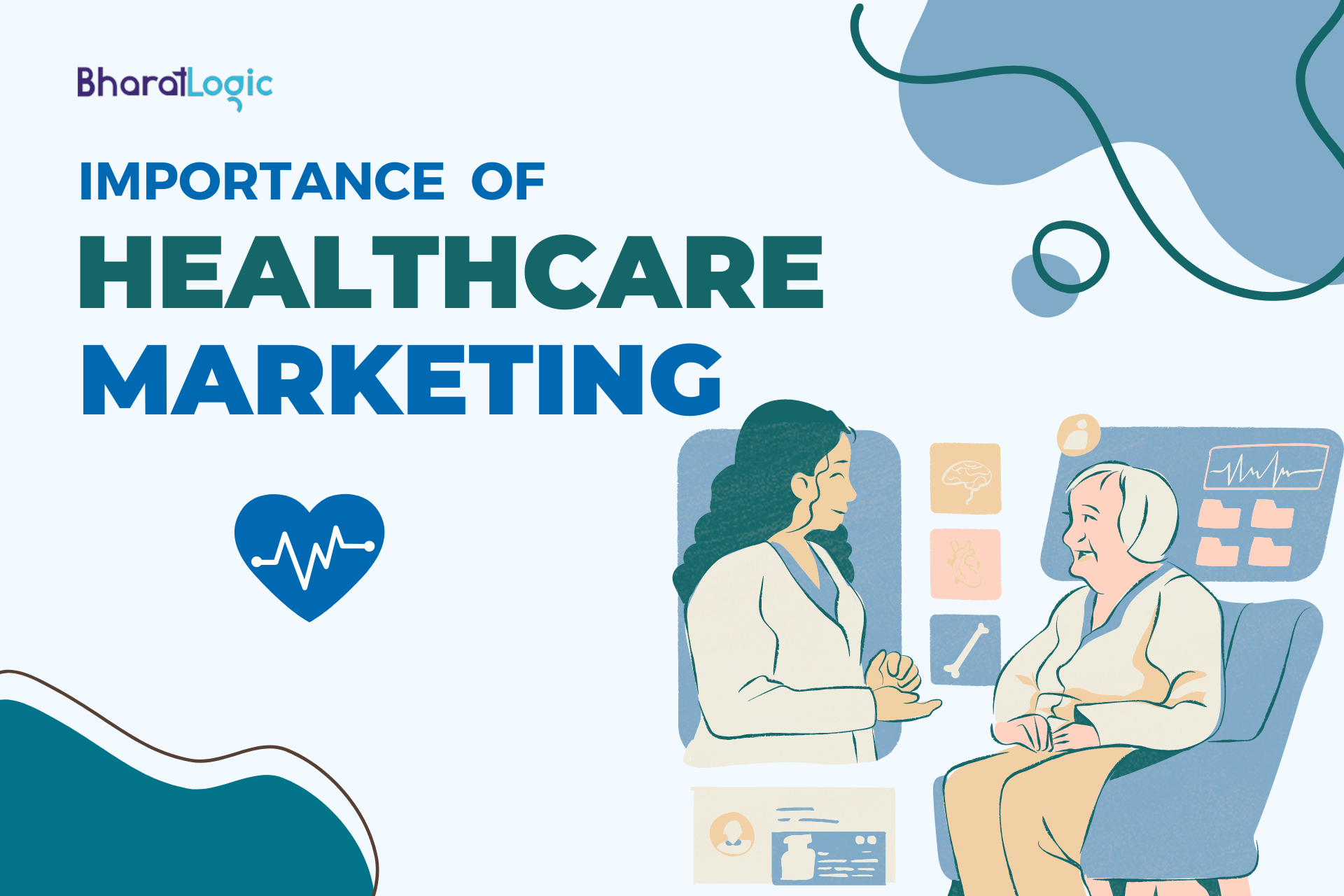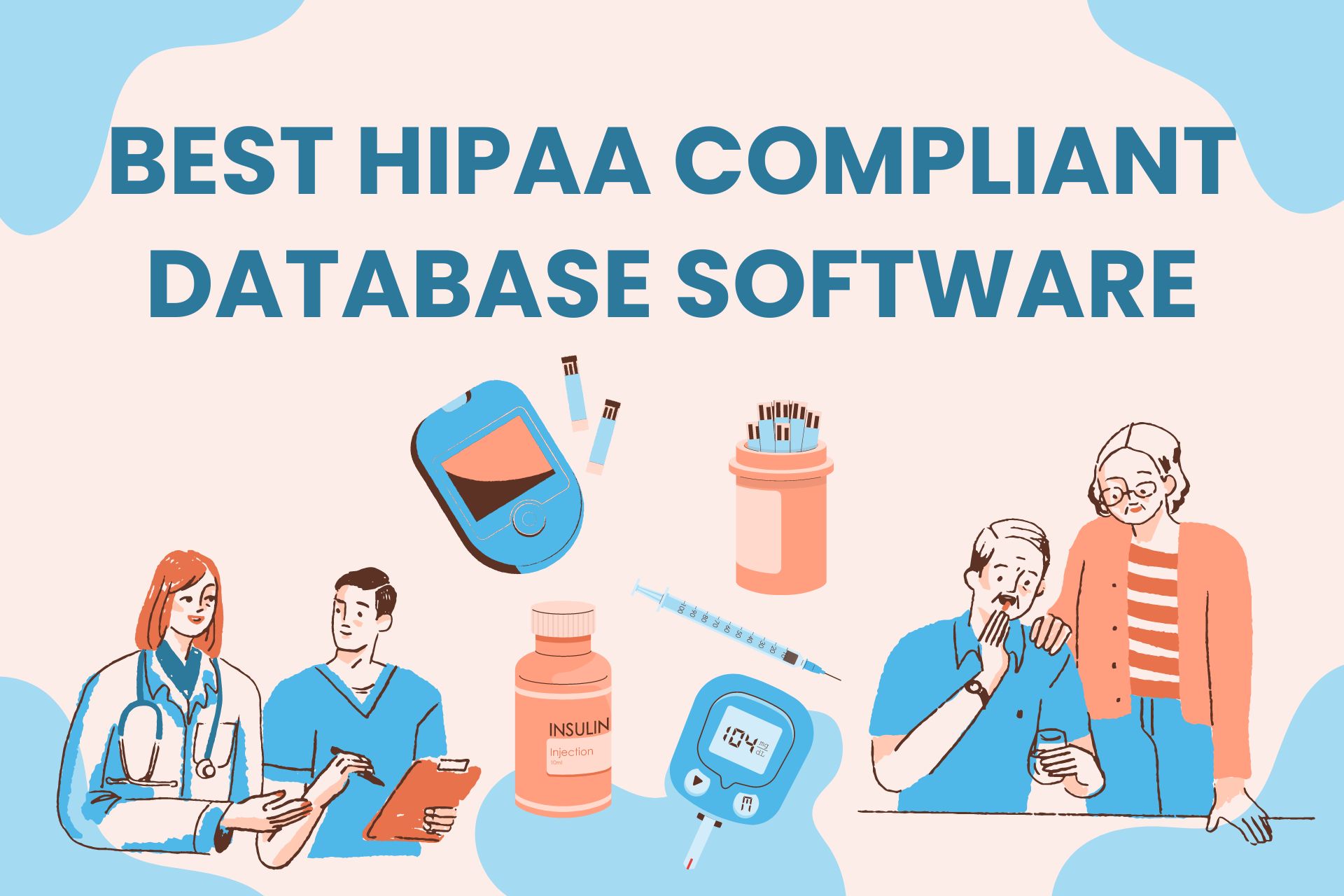IMPORTANCE OF HEALTHCARE MARKETING
Healthcare marketing serves as a strategic approach, employing planned outreach and communications to resonate with healthcare consumers, guide them through their needs, and foster ongoing engagement with the health system.
According to the Content Marketing Institute, around 83% of healthcare marketers in North America used content marketing as part of their strategy in 2020. Educational content, such as blogs, articles, and videos, is crucial for building trust and providing valuable information to patients.
In the rapidly evolving healthcare landscape, marketing is not just a tool but a vital element for sustainable development. Its absence could result in a stagnant patient base, with even loyal patients gradually losing interest.
The healthcare industry is dynamic, with numerous practices offering similar services. Effective marketing not only highlights the uniqueness of your practice but positions it as a superior choice.
Why Healthcare Marketing Matters:
Health marketing integrates traditional marketing principles with science-based strategies to protect and promote the well-being of diverse populations. It encompasses creating, communicating, and delivering messages to the public about prevention, health promotion, and health protection. This approach plays a crucial role in making advancements in medicine and health-protecting services widely known. Marketers employ various traditional methods, including marketing research, product design, distribution, pricing, advertising, promotional sales, and sales management.
The marketing strategy encapsulates the fundamental principles known as the traditional “4Ps” of marketing, each playing a pivotal role in shaping the success of any business:
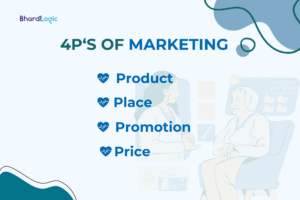
1.Product:
-
-
- The “product” represents what the company is endeavoring to sell to consumers.
- It encompasses the features, benefits, and unique qualities that distinguish it from others in the market.
-
2.Place:
-
-
- “Place” refers to the accessibility of the product or service.
- It involves the distribution channels, locations, and methods through which consumers can access and obtain the offering.
-
3.Promotion:
-
-
- “Promotion” is the act of creating awareness and generating demand for the product or service.
- This includes advertising, public relations, marketing communications, and various promotional activities to reach and engage the target audience.
-
4.Price:
-
-
- “Price” is the monetary, time, or reputational cost associated with the product or service.
- It involves determining the right pricing strategy that aligns with the perceived value of the offering in the market.
-
These four elements collectively form the foundation of a comprehensive marketing strategy, guiding businesses in effectively positioning and promoting their offerings to meet the needs and expectations of their target audience.
Numerous healthcare options empower patients, preventing them from feeling confined to a particular physician, clinic, or plan. Marketing your healthcare practice establishes a direct channel of communication with your patient audience, fostering trust and sparking interest.
Effective healthcare marketing systems ensure that both current and potential patients experience quality care across every aspect of the practice. This extends from the website and social media pages to interactions with patient appointment representatives and personalized attention from physicians. The goal is not just to provide information but to create a seamless and engaging experience, empowering patients to make informed choices about their healthcare journey.
Benefits of Healthcare Marketing:
1. Augmentation of the Patient Base:
-
- Healthcare marketing strategically targets potential patients, providing a competitive advantage by informing and educating the intended patient base, resulting in increased patient acquisition.
2. Local Physician Referrals:
-
- The evolution of physician outreach programs, a standard healthcare marketing practice, establishes physician liaison networks. Through these networks, physicians can cultivate highly engaged referral systems, fostering both patient growth and increased revenue.
3. Promotion of Medical Services:
-
- A study by the Pew Research Center found that as of 2021, around 81% of U.S. adults use YouTube, and 69% use Facebook. Healthcare marketing systems, like social media, websites, content marketing, and digital advertising, empower physicians to showcase their services effectively. This boosts visibility and attracts diverse patient demographics.
4. Enhancing the Patient Experience:
-
- Healthcare marketing systems contribute to a superior patient experience by providing access to top-quality medical care. The availability of continuing education resources, patient portals, reviews, and efficient communication channels ensures patients can connect swiftly, receive important information, and actively participate in their care.
5.Strategic Brand Building:
-
- Healthcare marketing aids in strategic brand building, helping providers establish a distinct identity, build trust, and convey a unique value proposition. This strengthens the provider’s position in the market and fosters patient loyalty.
6.Digital Patient Engagement:
-
- Leveraging digital channels, healthcare marketing facilitates active patient engagement. From interactive online platforms to personalized digital communication, patients can be involved in their healthcare journey, fostering a sense of empowerment and connectivity.
7. Data-Driven Decision-Making:
-
- Healthcare marketing employs data analytics to gather insights into patient preferences and behaviors. This data-driven approach allows healthcare providers to make informed decisions, refine strategies, and tailor services to meet evolving patient needs.
8. Community Health Initiatives:
-
- Healthcare marketing extends beyond individual practices, enabling providers to engage in community health initiatives. By promoting preventive measures, organizing health awareness campaigns, and actively participating in community well-being, healthcare practices contribute to a healthier society.
9. Telehealth Integration:
-
- In the era of digital transformation, healthcare marketing plays a crucial role in promoting and integrating telehealth services. This not only expands access to healthcare but also positions the practice as tech-savvy and adaptable to evolving patient preferences.
According to New analysis by McKinsey, indicates telehealth use has increased 38X from the pre-COVID-19 baseline.
19 baseline.
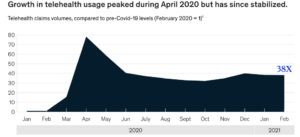
These additional points further highlight the comprehensive impact of healthcare marketing, covering aspects of patient engagement, data-driven decision-making, community involvement, and technological adaptation.
Marketing Technologies in Healthcare
To propel impactful healthcare marketing initiatives, healthcare organizations require key marketing technology systems. These include:
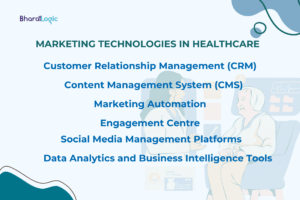
Customer Relationship Management (CRM):
- A CRM platform integrates patient data, enabling marketers to build, launch, optimize, and measure multi-channel healthcare campaigns. CRM personalizes outreach, enhances customer service, and nurtures long-term relationships.
Content Management System (CMS):
- A CMS updates and organizes healthcare marketing content, collaborating with CRM to ensure content aligns with brand strategies. It also facilitates content repurposing and recycling for efficient distribution.
Marketing Automation:
- Marketing automation platforms allow healthcare marketers to automate content delivery to specific patients at the right time. Leveraging CRM data, this software ensures each customer journey is unique and based on real-time data and triggers.
Engagement Centre:
- An Engagement Centre functions as an advanced call center, delivering highly personalized patient experiences on-the-fly for both incoming and outbound calls. This elevates patient engagement and satisfaction.
Social Media Management Platforms:
- Tools for managing and analyzing social media activities, enabling healthcare marketers to effectively engage with patients on popular platforms, share valuable content, and monitor online conversations.
A study by the Pew Research Center found that as of 2021, around 81% of U.S. adults use YouTube, and 69% use Facebook. Social media platforms are essential for healthcare marketing to reach and connect with diverse audiences.
-
Data Analytics and Business Intelligence Tools:
- Integrating analytics tools provides actionable insights into patient behaviors, preferences, and campaign performance. This data-driven approach aids in making informed decisions for optimizing marketing strategies.
Creative Marketing Ideas for Healthcare Systems
In the fiercely competitive healthcare industry, the success of patient acquisition and organizational growth hinges on a well-crafted marketing strategy. As the landscape evolves, employing innovative marketing approaches becomes increasingly crucial to break through the clutter and foster connections with the patient population.
- Wellness Challenge: Initiate a wellness challenge among patients, encouraging them to share progress on social media. Incorporate branding with a unique hashtag, creating a community-driven health initiative.
- Waiting Room Experience: Leverage the captive audience in waiting rooms by enhancing the waiting room experience. Display news, health tips, and brand messaging to engage patients while they await medical attention.
- Blogger Relations Campaign: Tap into the influence of bloggers by initiating a blogger relations campaign. Bloggers hold substantial sway over their followers, making them valuable advocates. Collaborate with health and wellness bloggers for authentic endorsements.
- New Patient Forms: Utilize the new patient forms process to educate newcomers about the organization. Include information on major services, upcoming events, or relevant programs in the new patient forms packet, ensuring a positive first impression.
In healthcare, marketing is a crucial force. A specialized healthcare marketing agency understands patient needs and industry intricacies. By employing proven strategies, they enhance an organization’s reputation. This includes crafting targeted campaigns, navigating regulatory landscapes, and utilizing diverse channels for effective messaging. Essentially, a healthcare marketing agency is a strategic partner dedicated to building a positive brand image and fostering patient trust in a competitive landscape.
Developers harness the power of cutting-edge tools to accelerate the development of Healthcare Industry projects and elevate the standard of code. Valuing quality above all else, BharatLogic prioritizes technological innovation and a meticulous approach to ensure exceptional results.

